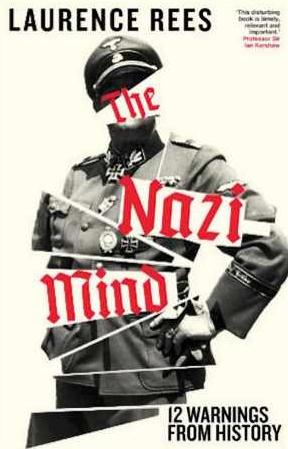INTERVIEW / LAURENCE REES
“The idea that there’s a widespread movement to learn from history or to understand it meaningfully is false”
BOOKS
LAURENCE REES explains to Danny Bird how studying the history of the Nazi regime yields warnings – but that frighteningly few people are interested in learning from the past
Danny Bird:
The subtitle of your book is ‘Twelve Warnings from History’. What prompted you to write this now?
Laurence Rees: My interest has always been in mentalities: why people think the way they do, how they justify their actions, and what makes them believe they are right. This focus has shaped my career much more than, say, an interest in military history. Though I respect such pursuits, my background in documentary journalism has always pushed me toward understanding people’s decisions: why do people think what they do?
I’ve been fascinated by these questions since the 1990s. Over time I began delving deeper into psychology and neuroscience to better understand mentalities, particularly those of the Nazis. This new exploration wasn’t driven by a sense that the world needed my book; rather, it grew from a broader interest in the human condition. That condition remains relevant regardless of current events.
My 1997 BBC documentary The Nazis: A Warning from History drew on the German philosopher Karl Jaspers’ injunction: “That which has happened is a warning.” I’ve always been intrigued by the idea of history as a source of warnings, not lessons. Lessons suggest rigid rules – such as the claim that Churchill’s opposition to Hitler proves that appeasement is always wrong. Yet Churchill appeased Stalin, so are there in fact occasions where appeasement is permissible?
Warnings, however, are clearer. They function like a doctor’s advice that if you keep smoking, you’re more likely to develop lung cancer. It’s not a certainty, but it’s a valuable caution. This approach has guided my study of history – seeking warnings that can illuminate the human condition and help us navigate the present.

The Nazi Mind: 12 Warnings from History by Laurence Rees (Viking, 448 pages, £25)
When trying to understand the mentality of past eras, are eyewitness testimonies more helpful than archive research?
I wouldn’t say that one approach is necessarily more valuable than the other. Having started in television, I always wanted to make history documentaries. I never aspired to be an academic historian but was inspired by shows such as The World at War [1973].
In documentary-making, there’s a clear divide between talking to people who experienced events first-hand and dealing with the more distant past. That divide fascinates me. I’ve always been particularly interested in talking to people with direct connections to history.